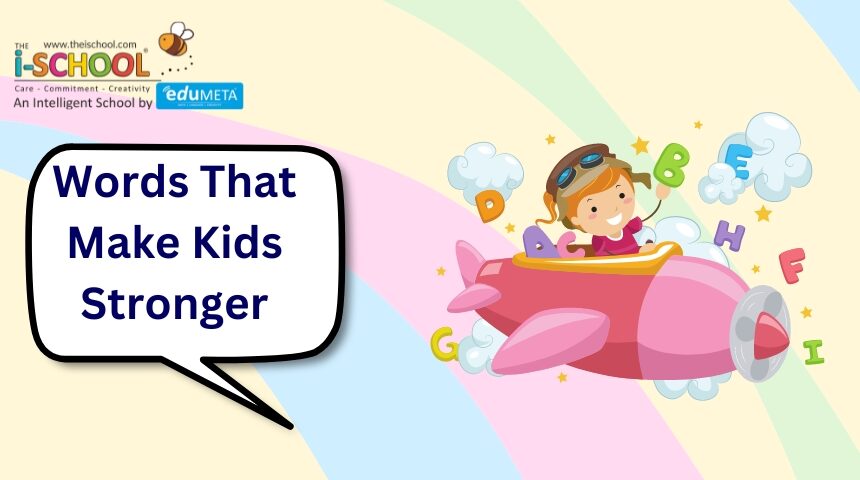Words That Make Kids Stronger

In the journey of raising children, the power of words cannot be overstated. The words we choose to speak to our children can significantly influence their confidence, self-esteem, and resilience. Positive and encouraging language can help them face challenges, believe in themselves, and grow into strong, capable individuals. This article explores the words and phrases that can make kids stronger, boosting their emotional and psychological development.
The Impact of Words on Child Development
Building Self-Esteem
Children’s self-esteem is shaped by how they perceive themselves and their abilities. Positive affirmations and supportive words from parents and caregivers can help children develop a healthy sense of self-worth. When children feel valued and capable, they are more likely to take on new challenges and persevere in the face of difficulties.
Encouraging Resilience
Resilience is the ability to bounce back from setbacks and keep going despite obstacles. By using words that encourage perseverance and a growth mindset, parents can help children develop resilience. Children who are taught to view failures as opportunities for growth are better equipped to handle life’s challenges.
Promoting Positive Behavior
Words can also be powerful tools for promoting positive behavior. Praising children for their efforts and achievements reinforces good behavior and motivates them to continue striving for excellence. Constructive feedback, delivered in a supportive manner, can guide children towards making better choices without damaging their self-esteem.
Words and Phrases That Makes Kids Stronger
“I believe in you.”
Expressing belief in a child’s abilities can boost their confidence and encourage them to take on new challenges. Knowing that a trusted adult has faith in them helps children develop self-belief and motivation.
“You are capable of great things.”
Reinforcing the idea that children have the potential to achieve great things can inspire them to aim high and work hard. This phrase helps instill a sense of ambition and determination.
“It’s okay to make mistakes. That’s how we learn.”
Encouraging children to see mistakes as learning opportunities fosters a growth mindset. This perspective helps them approach challenges with a positive attitude and reduces fear of failure.
“I’m proud of your effort.”
Focusing on effort rather than just outcomes teaches children the value of hard work and persistence. Praise for effort helps children understand that success is a result of dedication and perseverance.
“How can we solve this together?”
Encouraging problem-solving and collaboration helps children develop critical thinking and teamwork skills. It also shows them that they are not alone in facing challenges and that seeking help is a strength, not a weakness.
“You are unique and special.”
Celebrating a child’s individuality boosts their self-esteem and helps them appreciate their unique qualities. This affirmation encourages children to embrace their differences and be confident in who they are.
“I’m here for you, no matter what.”
Providing reassurance and unconditional support helps children feel secure and loved. Knowing that they have a reliable source of support gives them the confidence to face difficulties and take risks.
Practical Tips for Using Empowering Words
Be Consistent
Consistency is key when using empowering words. Make it a habit to incorporate positive affirmations and supportive language into daily interactions with your child. Over time, these words will become an integral part of their self-belief and mindset.
Use Positive Reinforcement
When children exhibit positive behavior or achieve a goal, use specific praise to reinforce their actions. For example, instead of saying “Good job,” say “You worked really hard on that project, and it shows in the results. Great effort!”
Model Positive Language
Children learn by observing the adults around them. Model positive language and behavior in your interactions with others. Show your child how to communicate respectfully and supportively, even in challenging situations.
Create a Positive Environment
Foster a positive and supportive environment at home. Encourage open communication, active listening, and mutual respect. A nurturing environment provides a safe space for children to express themselves and build confidence.
Conclusion
The words we use with our children have a profound impact on their development. By choosing empowering and supportive language, we can help them build confidence, resilience, and a positive self-image. Incorporate these words and phrases into your daily interactions to nurture strong, capable, and emotionally healthy children. Remember, the right words at the right time can make all the difference in helping children grow into their best selves.
